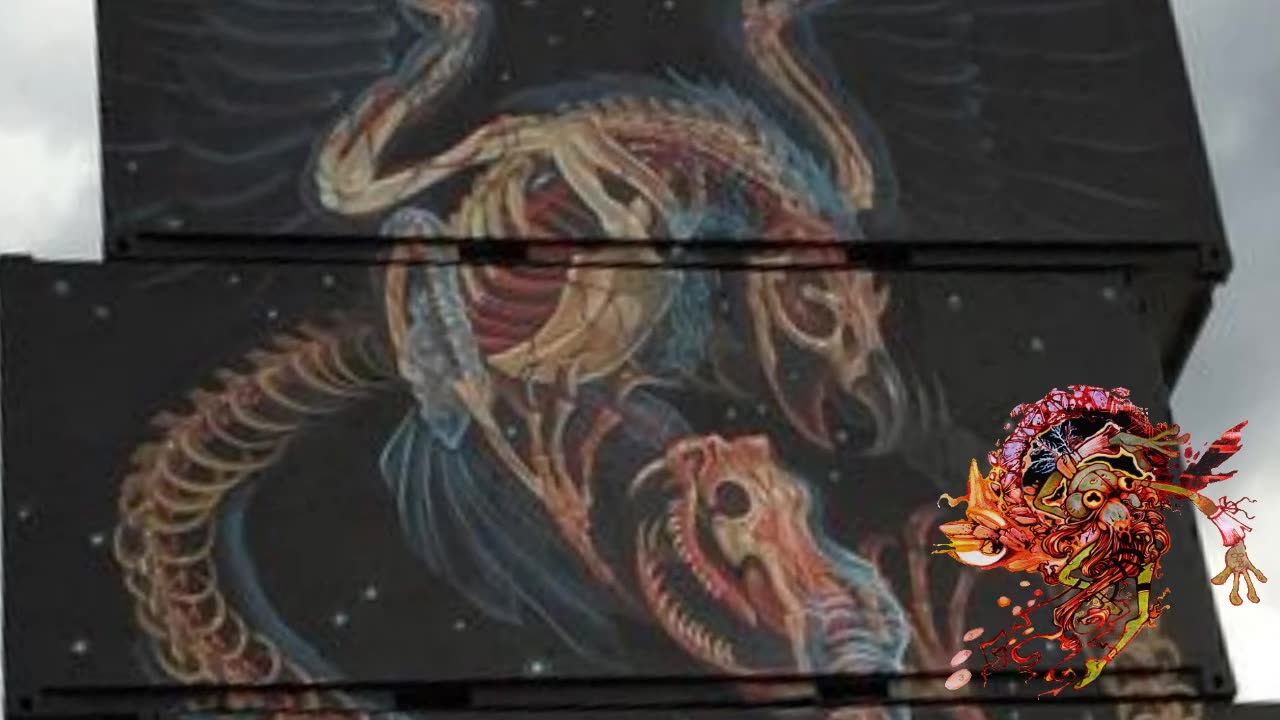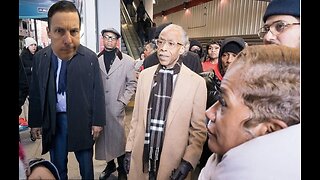Premium Only Content

Should I Stay Or Should I Go Train In Vain Stand By Me The Clash
Should I Stay Or Should I Go Album: Combat Rock (1982)
Train In Vain (Stand By Me) Album: London Calling (1979)
bonus track...
The Clash
Should I Stay Or Should I Go is one of the more popular songs by The Clash, this one uses a very unusual technique: Spanish lyrics echoing the English words.
Singing the Spanish parts with Joe Strummer was Joe Ely, a Texas singer whose 1978 album Honky Tonk Masquerade got the attention of The Clash when they heard it in England. When Ely and his band performed in London, The Clash went to a show and took them around town after the performance. They became good friends, and when The Clash came to Texas in 1979, they played some shows together. They stayed in touch, and when The Clash returned to America in 1982, they played more shows together and Ely joined them in the studio when they were recording Combat Rock at Electric Ladyland Studio in New York.
In a 2012 Songfacts interview with Joe Ely, he explained: "I'm singing all the Spanish verses on that, and I even helped translate them. I translated them into Tex-Mex and Strummer kind of knew Castilian Spanish, because he grew up in Spain in his early life. And a Puerto Rican engineer (Eddie Garcia) kind of added a little flavor to it. So it's taking the verse and then repeating it in Spanish."
When we asked Ely whose idea the Spanish part was, he said, "I came in to the studio while they were working out the parts. They'd been working on the song for a few hours already, they had it sketched out pretty good. But I think it was Strummer's idea, because he just immediately, when it came to that part, he immediately went, 'You know Spanish, help me translate these things.' (Laughs) My Spanish was pretty much Tex-Mex, so it was not an accurate translation. But I guess it was meant to be sort of whimsical, because we didn't really translate verbatim."
According to Strummer, Eddie Garcia, the sound engineer, called his mother in Brooklyn Heights and got her to translate some of the lyrics over the phone. Eddie's mother is Ecuadorian, so Joe Strummer and Joe Ely ended up singing in Ecuadorian Spanish.
About two minutes in, you can hear Mick Jones say, "Split!" While it sounds like it could be some kind of statement related to the song, Joe Ely tells Songfacts it had a much more quotidian meaning. Said Ely: "Me and Joe were yelling this translation back while Mick Jones sang the lead on it, and we were doing the echo part. And there was one time when the song kind of breaks down into just the drums right before a guitar part. And you hear Mick Jones saying, 'Split!' Just really loud, kind of angry. Me and Joe had snuck around in the studio, came up in the back of his booth where he was all partitioned off, and we snuck in and jumped and scared the hell out of him right in the middle of recording the song, and he just looked at us and says, 'Split!' So we ran back to our vocal booth and they never stopped the recording."
The line, "If you want me off your back" was originally the sexually charged line "On your front or on your back." In April 1982, the famed '60s producer Glyn Johns was brought in to slash the album down and make it into a mainstream-friendly single-LP. In addition to cutting parts of songs out, he insisted that Mick Jones re-record this line, fearing that US radio stations would not touch a record with such a sexually suggestive line.
These sessions as a whole were in bad blood, with Jones furious that his original mixes of his songs were being massacred against his will, and it was this combined with other factors (such as the return of controversial manager Bernie Rhodes) which resulted in the breakdown of the band and Jones' sacking in 1983.
For the most part, Mick Jones has refused to assign meaning to the lyrics. He said in 1000 UK #1 Hits by Jon Kutner and Spencer Leigh: "'Should I Stay Or Should I Go?' wasn't about anything specific and it wasn't pre-empting my leaving The Clash. It was just a good rocking song, our attempt at writing a classic."
But in a 2009 Rolling Stone article on The Clash, the magazine asserts that Jones wrote this song about his girlfriend Ellen Foley, who acted on the TV series Night Court and sang with Meat Loaf on "Paradise By the Dashboard Light." She told Songfacts in 2021: "I really don't know if it's about me. It's a very good song though, whomever it's about."
It was also speculated that the song is a comment on Jones' position in the band, pre-empting his sacking in 1983 by over a year and a half. Strummer pondered this in interviews, as did Jones. "Maybe it was pre-empting my leaving" he noted in 1991, although he did conclude that it was more likely about a "personal situation" - presumably his relationship with Foley.
Psychobilly is the punk version of rockabilly; it's a fusion genre which also gets a nice sound out of elements of everything from doo-wop to blues, but with that punk edge to it. "Should I Stay or Should I Go?" resembles early punk, almost retro style, and so could be called rockabilly. More than anything, it compares very nicely with The Cramps.
"Should I Stay Or Should I Go?" is possibly one of the most covered Clash songs by dint of being one of the most popular. Some of the groups to cover this song include Living Colour, Skin, MxPx, Weezer, and The Ukulele Orchestra of Great Britain. Anti-Flag covered the song at various festival dates in 2012, and more memorable versions exist by Die Toten Hosen and Australian pop star Kyle Minogue. It even shows up in "Weird Al" Yankovic's "Polkas On 45" medley - a takeoff on the "Stars On 45 Medley."
As a UK #1 single, what song did it replace as #1 on the UK charts? "Do the Bartman" by The Simpsons. Speaking of charts, while this song was their only #1 in the UK, The Clash got even less respect in the US; their highest chart on the Billboard was #8 for "Rock the Casbah". That's amazing when you consider how much airplay they get on the radio.
Introduced into The Clash's live set in Paris in September 1981, "Should I Stay or Should I Go?" sat awkwardly in the set after Jones was fired - it was a hugely popular song so fans expected it to be played, but its author and singer was no longer in the band.
For a while in 1984 it was performed with new guitarist Nick Sheppard singing lead vocals, with the song developing into an aggressive Metal thrash with bellowed Punk-style vocals. In the end The Clash Mark II dropped the song altogether, although not before they also added some nasty lyrics about Jones (as was common in the post-Jones Clash, sadly). Two much more representative versions are the version of the song filmed at Shea Stadium in 1982 (supporting The Who) for the music video, and the version from Boston in 1982 that features on the From Here To Eternity live compilation.
Ice Cube and Mack 10 did a rap remake of this song for the 1998 Clash tribute album Burning London.
This was re-released as a single in February 1991 after it was used in a Levi's jeans television ad. It went to #1 in the UK, but didn't chart in the US.
Cheekily, Mick Jones used a vocal sample from this track on one of his post-Clash projects, Big Audio Dynamite. You can hear it on their song "The Globe."
This is a key song in the '80s-themed Netflix series Stranger Things. It was first used in the second episode (2016), where the character Jonathan Byers introduces it to his younger brother, Will, to distract him when their parents fight, telling him it will change his life. When Will gets abducted into an alternate universe, the song becomes a way for him to communicate, and a source of comfort. The song is used several times throughout the series.
To secure the rights, music supervisor Nora Felder had to explain to the band how it would be used. Through scene descriptions, she convinced them they would honor the song.
On December 22, 2007, several prominent musicians, including Flea of Red Hot Chili Peppers, put on a tribute show for Strummer, who died of a heart attack in 2002. It was titled Cast A Long Shadow and held in the Key Club in West Hollywood, California. English band Love And Rockets played "Should I Stay or Should I Go?" twice, calling the audience up to sing along the second time.
Despite the title, the words "train in vain" don't appear in this song. The predominant lyric is "stand by me," but that's the title of a famous song by Ben E. King.
The title of The Clash song comes from the train rhythm in the song combined with the theme of being lost. It's also a reference to Tammy Wynette's 1975 hit single "Stand By Your Man" ("you say you stand, by your man, tell me something, I don't understand").
On the original vinyl copy of the album, "Train Is Vain" isn't listed on the tracklisting on the sleeve. The story is that the song was recorded for an NME promotional flexi-disc once the London Calling sessions were done, and the flexi-disc idea then fell through, leaving the song with no home. The band hastily tacked the song onto the end of the album just before vinyl pressing, but the sleeve had already been designed and there was no time to add it to the tracklisting. The only clue of it's existence is in the run-out groove on Side 4, where the name is carved into the vinyl. On all subsequent releases (including the CD copy) "Train In Vain" is included on the tracklisting on the sleeve.
According to NME magazine (3/16/91), this isn't listed on the sleeve credits for London Calling because it was originally going to be a flexi giveaway with NME magazine. Unfortunately, the idea proved too expensive and the track went on the album instead.
Clash guitarist Mick Jones sang lead vocals on this song. The lyrics appear to reference the end of his on-off relationship with Viv Albertine, which he also explored on the London Calling track "I'm Not Down." "Train In Vain" also contains a pointed reference to his flat being burgled in early 1979 and to his feelings of depression ("I need new clothes, I need somewhere to stay").
This was the first US Top 40 hit for The Clash. They had only one more - "Rock The Casbah" in 1982.
The album cover was designed as a tribute to Elvis Presley's first album. The words "London" and "Calling" are displayed the same way "Elvis" and "Presley" were on his 1956 debut. Instead of a photo of Elvis, however, the text frames a shot of Clash bass player Paul Simonon smashing his bass during a show at The Palladium in New York. That bass was later displayed in the Rock and Roll Hall of Fame.
The song became a firm live favorite for the band, introduced to their live set in December 1979 and played consistently until Mick Jones was fired in 1983. The music video is taken from one of these many live performances, a February 1980 show in Lewisham filmed by Don Letts and featuring an amusing introduction from Joe Strummer: "We'd like to take the soul train from platform one... and if you don't want to come, there's always the toilet!"
You'd think a big hit like "Rock the Casbah" or "Should I Stay or Should I Go" would be the most covered Clash song, but it's actually "Train in Vain." Cover versions exist by Third Eye Blind, Ill Rapture, Dr. Haze/DJ X-Cel, The Sabrejets, Dwight Yoakam, Annie Lennox, The Manic Street Preachers, Jones Crusher and Kirsty MacColl.
The Pretenders lead singer Chrissie Hynde was on the scene when the band recorded this at Wessex Studios. Mick Jones explained to Daniel Rachel (The Art of Noise: Conversations with Great Songwriters): "It wasn't about Chrissie Hynde but she was upstairs and there was a window from the pool room where she could look in. I was singing it to Chrissie."
This R&B-flavored tune introduced The Clash to a new audience. "We couldn't believe how popular it became, especially in America," Jones said. "That broke us in there. They thought it was a regular R&B song, then they found out it was The Clash."
-
 LIVE
LIVE
Jeff Ahern
1 hour agoMonday Madness with Jeff Ahern (6am Pacific)
497 watching -
 1:21:30
1:21:30
Game On!
10 hours ago $1.26 earnedPatrick Mahomes does it AGAIN!
7.83K3 -
 15:20
15:20
Misha Petrov
2 hours agoReacting To Liberal MELTDOWNS Over Trump’s Return - Gen Z Is Planning a REVOLUTION?!
14.3K16 -
 18:22
18:22
Neil McCoy-Ward
2 hours agoThe 🇨🇴 Colombian President Just Learned The HARD WAY!!! (Another Win For The USA 🇺🇸)
13.3K8 -
 1:56:04
1:56:04
TheDozenPodcast
17 hours agoMass deportations, Islamists, Saving the UK: Nick Tenconi
25K18 -
 35:24
35:24
Survive History
22 hours ago $9.10 earnedCould You Survive in a Cavalry Regiment During the English Civil War?
90.6K9 -
 28:15
28:15
Degenerate Plays
17 hours ago $4.48 earnedTwo Birds' Secret Meeting - Gotham Knights : Part 26
73.1K6 -
 12:29
12:29
Mr. Build It
6 days agoWish I Knew This Before I Started Building It
69.1K26 -
 2:03:57
2:03:57
Megyn Kelly
2 days agoNew Trump Derangement Syndrome, and How CNN Smeared a Navy Veteran, w/ Piers Morgan & Zachary Young
163K189 -
 10:05
10:05
DIY Wife
3 years agoHow We Flip Old Furniture For Profit!
89.6K63